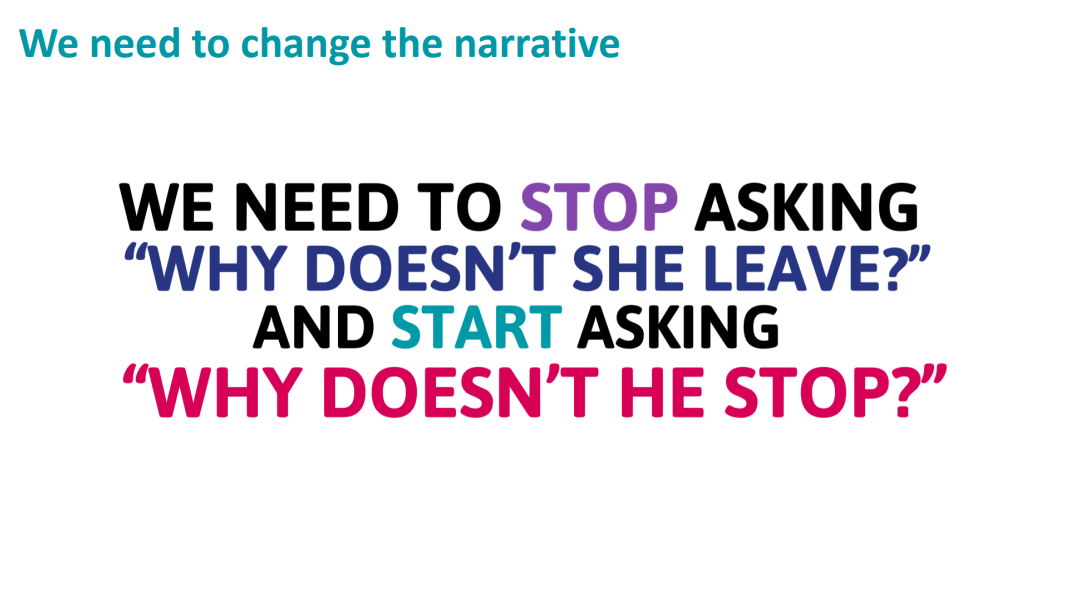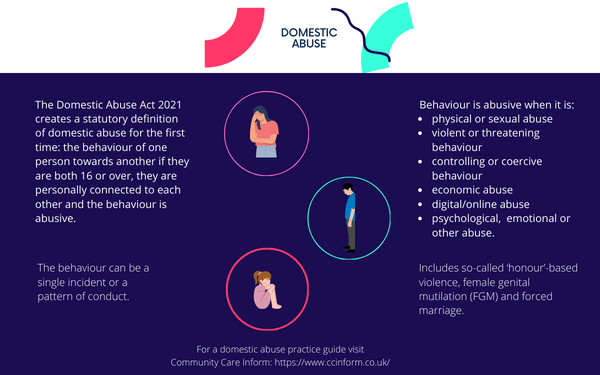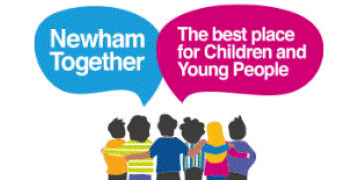Data from the Office for National Statistics (ONS) shows that one in three crimes of violence are domestic abuse related.
Nationally, domestic abuse against a parent was a factor in one-third of children’s social care assessments where a need was identified, and in Newham, this can be as high as two-thirds for children with a child protection plan in place.
Furthermore, according to figures from the Mayor’s Office for Policing and Crime (MOPAC), Newham has one of the highest levels of reported domestic abuse in the capital. The majority of perpetrators of domestic abuse are men.
With the aim of reducing these numbers and keeping children and survivors safe, social workers in Newham are being trained in a model of practice that partners with survivors and intervenes with the perpetrator to reduce risk and harm, called Safe and Together.
“We work alongside [the survivor of abuse] to think about how to make things a lot safer for her and the children, and one of the ways that we will do that is by to have a much more proactive approach to the perpetrator of abuse,” says Jane Luby, one of four practice development social workers at Newham Council.
“The perpetrators are often reluctant to engage with us, whereas survivors usually do so much more readily. But this can lead to us focusing responsibility for change on the survivor and feel like we’re blaming her for her abuse.
“By incorporating the Safe and Together approach into our systemic model of working with families, we’re really trying to tip that way of working on its head and to focus on the strengths demonstrated by the survivor to develop a more trusting and collaborative relationship.”
Jane says that, in the past, victims of domestic abuse were usually advised to leave the home or relationship. However, this is not always possible; nor is it always the best option long term.
“Part of my role is helping our social workers not only to partner with the survivor, but also to have conversations with men that hold them accountable for the abuse as well as motivating them as fathers to want change.
“If conversations with men focus only on the narrative of them being bad people they’re unlikely to come up to see us again. But by proactively exploring the vision of the ‘fathers they want to be’ and behavioural changes then hope is introduced.”

Jane Luby, practice development social worker
Safe and Together
The Safe and Together model provides practitioners with tools to support their conversations with survivors and perpetrators.
“These tools really highlight for men the links between the dad they want to be and their abusive behaviours, so they can see the discrepancy between the two,” explains Jane.
It can be daunting for social workers to work with perpetrators, but in Newham, a practice development social worker like Jane will work closely with the practitioner to help them apply what they have learnt on the four-day Safe and Together training programme.
“The focus [of the sessions] is not only on the individual perpetrator, but also in skilling up the social worker to feel they have the tools and approaches to have what can be quite challenging conversations with men.”
Implementing the model
Maya*, a social worker in the safeguarding and intervention service, has benefited from the training and the co-working sessions.
Referring to those conversations with perpetrators, she says: “I don’t think I could have imagined it was something I could do […] I feel like I have been upskilled in this way by the work I’ve done with Jane, I feel really confident in what I’ve learned.
“I wish [the training] was incorporated more when I was at university. I think it would have been really helpful. [The training] felt quite radical, it’s a really big mindset shift for me that affects every aspect of the work. I think I would even consider wanting to progress my career to specialise in domestic abuse.”
Perpetrator programmes
Once Maya or another social worker has started sessions with a family, they can make a referral to one of two perpetrator programmes available to Newham residents.
Newham has introduced a fortnightly domestic abuse perpetrator panel to consider referrals to either of the programmes.
One is the Culturally Integrated Family Approach (CIFA) programme, which is available to 10 London boroughs including Newham.
CIFA works with perpetrators from minority ethnic backgrounds, delivering weekly sessions over a six-month period. The service takes an intersectional approach, taking not just one identity like race or gender into account, but all of the elements that the victim and perpetrator may identify with.
The second programme is Drive, a nine-month long intervention. Drive is delivered by a partnership of three organisations (Respect, Safe Lives and Social Finance), and works with perpetrators who pose a high-risk, high-harm level of domestic abuse to their partner or family.
According to research by University of Bristol into 500 cases, the number of perpetrators displaying physical abuse fell by 82%, with the number engaging in sexual abuse falling by 88%, after taking part in the Drive project.

Credit: Drive Project
Perpetrator panel
Michelle Edwards, head of the youth justice and adolescent service at Newham, is the co-chair of the panel.
“As co-chair of Newham’s domestic abuse perpetrator panel, my role is to ensure there is a whole family approach. Having this provides us with a unique governance approach; that includes our practice development social workers supporting the workforce. We are also measuring impact across children’s, as well as identifying opportunities for learning and development across Newham’s safeguarding adults and children partnership”.
The impact of this work with perpetrators is clear when hearing feedback from victims and survivors.
Julie*, whose partner took part in the Drive project, states that before the programme, she feared her partner could never change.
However, after the intervention, she says: “I felt me and the children were safer. I felt reassured. He acknowledged his behaviour and apologised […] He would never admit anything, so when he apologised and fully acknowledged his behaviour it opened up the door for me to move on and to also gain closure.”
*Name changed and case study provided by Drive Project





 Facebook
Facebook X
X LinkedIn
LinkedIn Instagram
Instagram